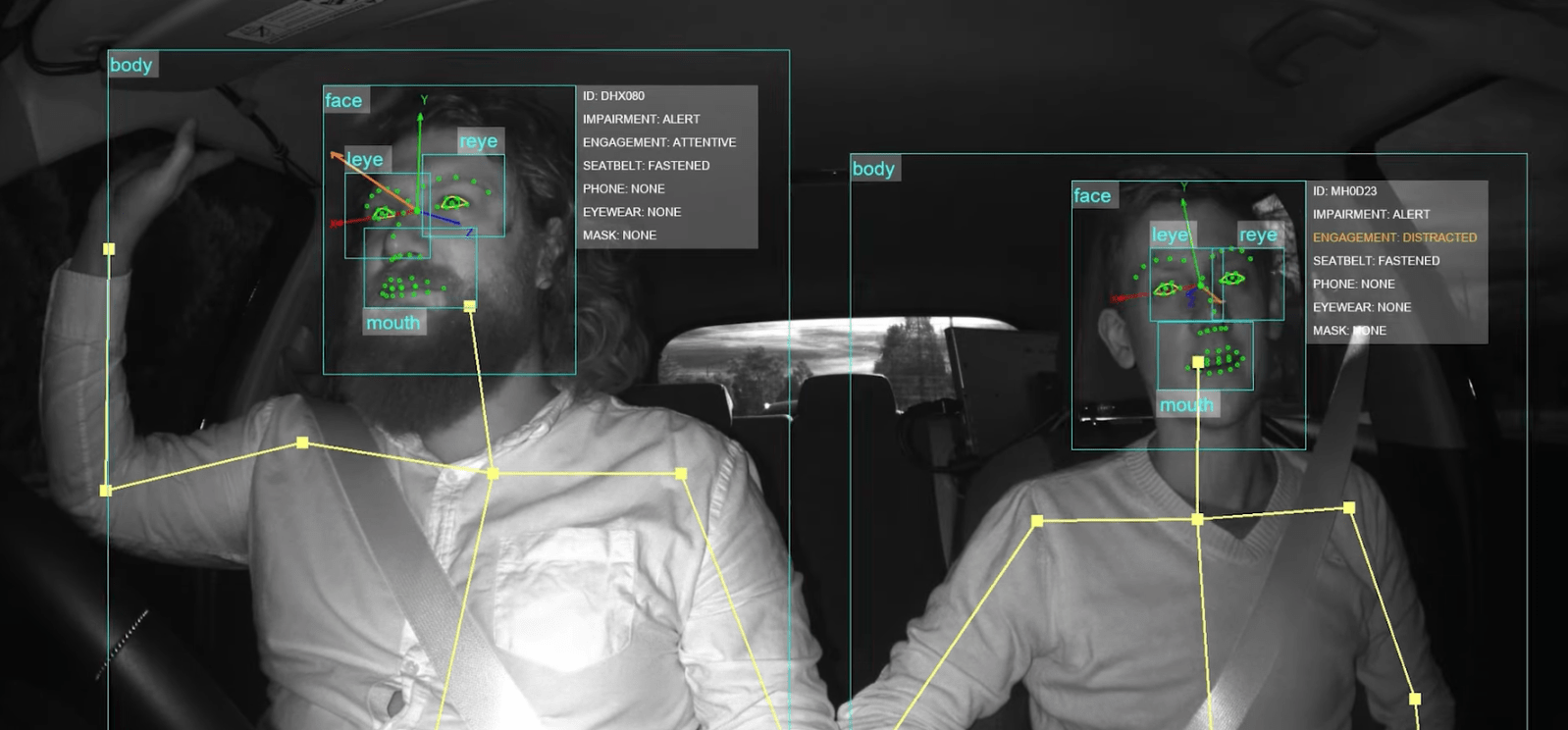Backed by $200 million in funding, 28-year-old Scott Wu and his team of competitive coders at Cognition are building an AI tool that can program entirely on its own, like an “army of junior engineers.”

Just before Christmas in 2023, the small team at Cognition was struggling to set up a particularly complex data server for the San Francisco–based AI startup’s fledgling coding assistant, Devin. They’d spent hours poring over installation documents and trying different commands but just couldn’t get it to work. Tired and frustrated, they decided to see how Devin would handle it.
As the AI sprung into action, it befuddled its creators. “It ran the most witchcraft, black-magic-looking commands,” cofounder and head of product Walden Yan, 21, recalls. For a time, it seemed Devin wouldn’t do any better than they had. Then a server terminal light that had been red for hours turned green. The data server was up and running.

Devin had deleted a faulty system file the team had overlooked, they realized. “That was the moment it really hit me how much software engineering is going to change,” Yan says.
It was the first major task Devin ever completed, and proof of concept for Cognition’s vision of AI taking the grunt work out of coding. Now, almost a year later, Devin is handling basic engineering jobs—spotting and fixing bugs, updating chunks of code and migrating them between platforms. Give it a simple prompt—“clean up this codebase”—and it creates a plan of action and executes it. Most times, it works.
It’s a different approach from other better-known and bigger players in the still-burgeoning field, like Github (which Microsoft bought for $7.5 billion in 2018) and $1.3 billion–valued Codeium, both of which provide digital assistants that help people write code with AI-powered suggestions. But Devin is an autonomous AI agent that, in theory, writes the code itself—no people involved—and can complete entire projects typically assigned to developers (the name Devin comes from “dev,” an abbreviation for the term). “What we saw is a real opportunity,” says Scott Wu, 28, Cognition’s cofounder and CEO, “to move from text completion to task completion.”
AI-generated code is already beginning to reshape the industry. In October, Google CEO Sundar Pichai said more than a quarter of new code at the tech giant is written by AI. At Github, which hit a $2 billion annual run rate in 2024, its code completion tool has accounted for 40% of revenue growth this year, Microsoft CEO Satya Nadella said in July. Pitchbook analyst Brendan Burke says AI coding has become the most-funded use case in generative AI, with startups focused on it raising over $1 billion in the first half of 2024 alone.
“Software engineering in the real world is just very messy.”
Scott Wu, CEO, Cognition
Actual revenue has just begun to grow: Research firm IDC expects it to surpass only $4 billion by 2029. Multiple AI coding startups have crossed $10 million in annual revenue run rates; Cognition declined to share revenue, but president Russell Kaplan says it has signed on dozens of customers, with a typical annual contract of six to seven figures. But the opportunity is exciting enough that giants like Anthropic, Amazon and IBM have launched their own coding tools, alongside startups like Poolside ($3 billion valuation) and Anysphere ($400 million valuation). The ability to write code has already become “table stakes” for the typical AI model, says IDC analyst Ritu Jyoti, who notes the leader in the space remains OpenAI’s ChatGPT. But coding AIs that can work completely on their own like the one Cognition is developing “will bring about a sea change.”
That may not be such great news for the 5 million Americans who work as programmers, earning a median salary of $130,000, much less the 13 million coders in India and China. Wu insists that massive job losses are not imminent and that the field has been “capped by supply.”
Workaday programmers may be wary, but investors love it. Peter Thiel’s Founders Fund and Khosla Ventures are betting on Wu and his crew of 25, investing $176 million in Cognition in a Series B round in April, spiking its valuation to $2 billion just six months after its founding. The cash injection came only three months after the startup closed a $21 million Series A in January.
Its customers include $300 million (2023 annualized revenue) expense management company Ramp, which uses it to write tests and clean up dead code, and $1.7 billion (fiscal 2024 revenue) data platform MongoDB, for which Devin updates outdated code architecture, saving its customers millions, chief product officer Sahir Azam says. Programmers at $8 billion (2023 revenue) fintech Nubank are using it for tasks like updating code repositories.
It’s still early days, but Founders Fund partner John Luttig invested in Cognition partly because he thinks it has enough of a head start that “catching up to them on coding agents will be very hard.” Microsoft seems to have a similar hunch. It inked a partnership in May to offer Devin to developers on its Azure cloud, with CTO Kevin Scott lauding it as an “extraordinary” tool at the company’s annual developer conference.
But Silicon Valley is littered with the bodies of companies that had glorious leads over Amazon and Google, until they didn’t. Cognition’s boosters are betting that if anyone can create the ultimate coding machine, it’s three world-class coders with the accolades to prove it. The founders are all Olympiad-level gold medalist coders who met on the competitive programming circuit. Wu was a grade school math whiz with a “legendary grandmaster” ranking (the highest) on Codeforces, a networking site for programmers that holds coding contests. Eric Glyman, a Cognition angel investor and CEO of Ramp, says Wu has one of the “top five IQs of anyone I’ve ever met.”
“Scott is clearly brilliant, curious and unbounded in ambition,” says Sarah Guo, a venture capitalist who has invested in Cognition in three funding rounds through her firm, Conviction. Wu is also a Forbes 30 Under 30 alum: He made the list in 2019 for his previous company, Lunchclub, which uses AI to book networking meetings. A Cognition investor told Forbes Wu left in 2022 because his interests had moved elsewhere (Wu declined to comment), and Lunchclub, which has raised about $30 million, is still chugging along.
“There’s always this gap between the hype of what’s possible and what reliably works.”
Varun Mohan, CEO, Codeium
Cognition launched Devin in March to a ton of buzz. In a demo video that has amassed 30 million views on X, the company claimed Devin had “successfully passed practical engineering interviews from leading AI companies” and completed messy coding tasks. Some engineers were blown away by Devin’s technical chops; others feared for their jobs. Shortly after launch, a video of Wu as a seventh grader dominating a math competition resurfaced, with online commentators joking, “He is not human he is an AI” and “Devin is just Scott answering your questions in a messaging app.”
Then, Carl Brown, a well-known independent developer from Austin, Texas, called shenanigans. In a video titled “Debunking Devin,” viewed more than 500,000 times, he accused Cognition of overselling its AI engineer. His review found that Devin took far longer than a human would to complete the job, and it introduced errors along the way.
Experiences like these have led some to question whether Devin is just more air blown into the AI hype bubble. Ask it to design a striking user interface and the results are drab, says Krish Manair, an engineer at data labeling company Labelbox, who tested the tool’s web app creation skills. Several rival founders told Forbes they think the company has overpromised on Devin’s abilities, making it seem like an engineer could use Devin right out of the box to code anything. Its current capabilities, they argue, are far more narrow and geared toward predefined tasks like cleaning up existing code. In a live demo, Forbes prompted Devin to build an app to tune a guitar. It cranked one out in about 10 minutes, but the app could not correctly identify the musical notes played to test it, and Cognition’s founders weren’t sure why. “There’s always this gap between the hype of what’s possible and what reliably works,” says Varun Mohan, CEO of rival coding startup Codeium.
Wu concedes Devin is far from perfect. “Software engineering in the real world is just very messy,” he says from Founders Fund headquarters overlooking the San Francisco bay. “Humans write bugs all the time.” And to be fair, multiple detractors were impressed with the tool’s abilities. Devin has improved significantly in the seven months since launch, Wu claims, in part thanks to feedback from early enterprise customers who seem to accept the agent as a work in progress. “We don’t see the tool as something that we expect to be magical,” Nubank CTO Vitor Olivier says. “We’re cautiously optimistic.” In some instances, he says, engineers with access to Devin were eight times faster at their jobs.
Cognition continues to experiment. Earlier this year, it gave Devin the ability to launch subordinate AIs to help it. But when Cognition tested this new “manager” mode, it found that sub-Devins would launch their own subordinates, which in turn would launch even more, creating a vast, never-ending loop of AI bureaucracy. “We eventually had to cancel the job because they just kept delegating the work,” Kaplan says.
That said, Kaplan notes the tool works best when several Devins work simultaneously on different projects, like an “army of junior engineers.” That’s a phrase that likely makes some people who code for a living uncomfortable, and Wu says some of the negativity toward Cognition comes from anxiety over whether AI will take away software engineering jobs. Devin could enable companies to pursue more projects, he argues, hiring humans to do the more meaningful work.
“There really is a lot of fear out there,” he says. “People have a lot of questions about what happens in this new paradigm.”
This article was originally published on forbes.com and all figures are in USD.


